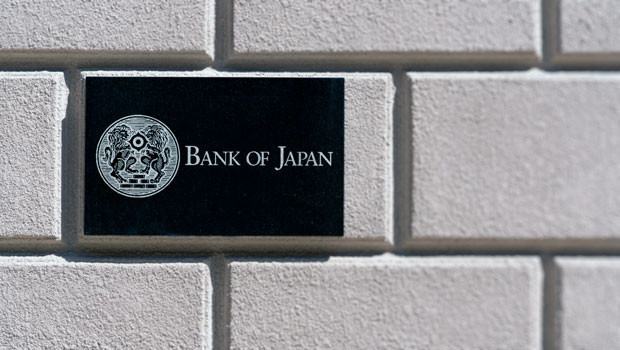
Source: Sharecast
Investors also digested key policy developments in Japan, where the central bank raised interest rates to their highest level since 2008, in line with expectations.
Additionally, Japan’s core inflation rate reached a 16-month high, reinforcing the central bank's cautious stance.
“Asian stocks advanced, especially Chinese firms, following comments by US president Trump suggesting a more lenient approach towards tariffs on China,” said TickMill market strategy partner Patrick Munnelly.
“This shift in tone led to positive movements in Chinese shares in Hong Kong, a weakening dollar, and a strengthening yuan.
“Trump's remarks during a Fox News interview, mentioning his preference to avoid imposing tariffs on China, buoyed investor sentiment.”
Munnelly noted that Chinese shares rose, with the Australian dollar also gaining.
“Despite these developments, markets remain cautious in interpreting Trump's statements too optimistically.
“Earlier, Trump addressed business leaders at the World Economic Forum in Davos, Switzerland, on Thursday, expressing his desire to reduce global oil prices, interest rates, and taxes.
“His remarks regarding lower interest rates influenced US markets, leading the S&P 500 to reach a record high, although investors stayed wary about the president's forthcoming actions on trade and tariffs.”
Most markets higher, Tokyo and Wellington bourses in the red
In Japan, the Nikkei 225 slipped 0.07% to close at 39,931.98, weighed down by losses in major stocks.
Mitsubishi Motors tumbled 6.88%, Nidec fell 3.16%, and J. Front Retailing declined 2.94%.
The broader Topix index dipped 0.03% to 2,751.04 as investors reacted to the Bank of Japan’s rate hike and inflation data.
China’s Shanghai Composite rose 0.7% to close at 3,252.63, supported by strong gains in technology and industrial stocks.
Xi'an Bright Laser Technology surged 16.94%, while Shanghai Chuangli Group and Shanghai LongYun Advertising & Media each posted gains of over 10%.
The Shenzhen Component meanwhile climbed 1.15% to 10,292.73.
In Hong Kong, the Hang Seng Index advanced 1.86% to 20,066.19, buoyed by robust performances in the technology sector.
Sunny Optical Technology Group rose 7.99%, while Xiaomi gained 6.81%, and Semiconductor Manufacturing International Corporation (SMIC) added 5.76%.
South Korea's Kospi 100 increased 0.65% to 2,539.52, led by significant gains in industrial and energy stocks.
Korea Zinc soared 11.62%, while Hanwha Ocean and Hyundai Electric Energy Systems rose 10.1% and 8.94%, respectively.
Australia's S&P/ASX 200 rose 0.36% to close at 8,408.90, with notable gains in retail and energy stocks.
Premier Investments climbed 6.59%, Genesis Energy gained 5.1%, and AMP rose 5%.
In contrast, New Zealand's S&P/NZX 50 edged down 0.27% to 13,024.70, weighed by declines in utility and agricultural stocks.
Vector fell 3.02%, Scales Corporation dropped 2.86%, and Vista Group International declined 2.47%.
In currency markets, the dollar was last down 0.4% on the yen, trading at JPY 155.43, as it weakened 0.64% against the Aussie to AUD 1.5809, and retreated 0.67% from the Kiwi, changing hands at NZD 1.7502.
Oil prices posted modest gains, with Brent crude futures last up 0.22% on ICE to $78.46 per barrel, and the NYMEX quote for West Texas Intermediate increasing 0.21% to $74.78.
Bank of Japan raises benchmark rate as core inflation accelerates
In policy news, the Bank of Japan raised its benchmark interest rate by 25 basis points to 0.5% on Friday, reaching its highest level since 2008.
The widely-expected move reflected the central bank’s effort to normalise monetary policy amid persistent inflation and rising wages.
It said the decision was made with an 8-1 vote, with board member Toyoaki Nakamura opposing the hike, arguing that policy adjustments should be postponed until further corporate earnings data was available.
The BoJ has repeatedly emphasised the importance of a “virtuous cycle” driven by wage growth, and cited reports from firms indicating plans for continued pay increases, supported by strong corporate profits and a tight labour market.
Japan's core inflation meanwhile accelerated to 3% year-on-year in December, reaching a 16-month high.
The figure, which excludes fresh food but includes energy costs, met economists' expectations and exceeded the 2.7% rate recorded in November.
Elsewhere, Singapore's central bank eased its monetary policy for the first time since 2020, citing easing inflation and concerns over slowing economic growth.
The Monetary Authority of Singapore announced a slight reduction in the slope of its Singapore dollar nominal effective exchange rate policy band to support economic activity.
The city-state’s manufacturing sector continued to expand in December, with fresh data showing factory output rising 10.6% year-on-year, surpassing market expectations.
It marked the sixth consecutive month of growth, following a revised 10.8% increase in November.
Growth was primarily driven by strong demand for electronics, with semiconductor production rising 11.4%, while consumer electronics saw a significant 41.2% surge.
However, on a seasonally-adjusted basis, overall production declined 0.7% from the prior month, reflecting some weakness outside the biomedical sector.
Reporting by Josh White for Sharecast.com.